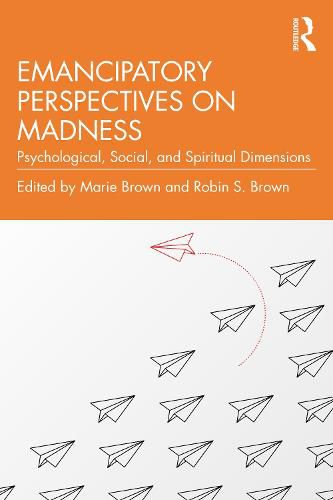Readings Newsletter
Become a Readings Member to make your shopping experience even easier.
Sign in or sign up for free!
You’re not far away from qualifying for FREE standard shipping within Australia
You’ve qualified for FREE standard shipping within Australia
The cart is loading…






This collection offers a diverse range of perspectives that seek to find meaning in madness. Mainstream biomedical approaches tend to interpret experiences commonly labelled psychotic as being indicative of a biological illness that can best be ameliorated with prescription drugs. In seeking to counter this perspective, psychosocial outlooks commonly focus on the role of trauma and environmental stress. Although an appreciation for the role of trauma has been critical in expanding the ways in which we view madness, an emphasis of this kind may nevertheless continue to perpetuate a subtle form of reductivism-madness continues to be understood as the product of a deficit. In seeking to move beyond causal-reductivism, this book explores a variety of perspectives on the question of finding inherent meaning in madness and extreme states.
Contributors to this book are distinguished writers and researchers from a variety of international and interdisciplinary perspectives. Topics span the fields of depth psychology and psychoanalysis, creativity, Indigenous and postcolonial approaches, neurodiversity, mad studies, and mysticism and spirituality.
This collection will be of interest to mental health professionals, students and scholars of the humanities and social sciences, and people with lived experience of madness and extreme states. Readers will come away with an appreciation of the more generative aspects of madness, and a recognition that these experiences may be important for both personal and collective healing.
$9.00 standard shipping within Australia
FREE standard shipping within Australia for orders over $100.00
Express & International shipping calculated at checkout
This collection offers a diverse range of perspectives that seek to find meaning in madness. Mainstream biomedical approaches tend to interpret experiences commonly labelled psychotic as being indicative of a biological illness that can best be ameliorated with prescription drugs. In seeking to counter this perspective, psychosocial outlooks commonly focus on the role of trauma and environmental stress. Although an appreciation for the role of trauma has been critical in expanding the ways in which we view madness, an emphasis of this kind may nevertheless continue to perpetuate a subtle form of reductivism-madness continues to be understood as the product of a deficit. In seeking to move beyond causal-reductivism, this book explores a variety of perspectives on the question of finding inherent meaning in madness and extreme states.
Contributors to this book are distinguished writers and researchers from a variety of international and interdisciplinary perspectives. Topics span the fields of depth psychology and psychoanalysis, creativity, Indigenous and postcolonial approaches, neurodiversity, mad studies, and mysticism and spirituality.
This collection will be of interest to mental health professionals, students and scholars of the humanities and social sciences, and people with lived experience of madness and extreme states. Readers will come away with an appreciation of the more generative aspects of madness, and a recognition that these experiences may be important for both personal and collective healing.